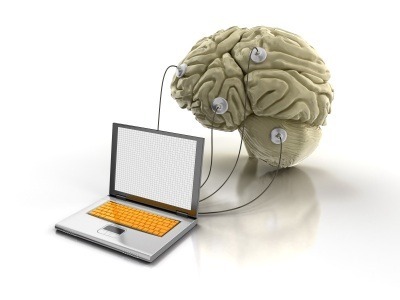To treat depression, we will likely combine neuroplasticity-based brain training games with antidepressants
 Computer Games Better Than Medication in Treating Elderly Depression (Live Science):
Computer Games Better Than Medication in Treating Elderly Depression (Live Science):
“Computer games could help in treating older people with depression who haven’t been helped by antidepressant drugs or other treatments for the disorder…In a study of 11 older patients, researchers found playing certain computer games was just as effective at reducing symptoms of depression as the “gold standard” antidepressant drug escitalopram. Moreover, those patients playing the computer games achieved results in just four weeks, compared to the 12 weeks it often takes with escitalopram (also known by its brand name, Lexapro)…
Antidepressant drugs have side effects that may make people wary of taking them, but not treating the illness can have even more serious consequences, Morimoto said…
The researchers noted this was a very small preliminary study, and they want to conduct a randomized controlled trial, Morimoto said. This computer therapy could be used by itself or in conjunction with antidepressant drugs, Morimoto said.”
Study: Neuroplasticity-based computerized cognitive remediation for treatment-resistant geriatric depression (Nature Communications)
- Abstract: Executive dysfunction (ED) in geriatric depression (GD) is common, predicts poor clinical outcomes and often persists despite remission of symptoms. Here we develop a neuroplasticity-based computerized cognitive remediation-geriatric depression treatment to target ED in GD. Our assumption is that remediation of these deficits may modulate the underlying brain network abnormalities shared by ED and depression. We compare the intervention to a gold-standard treatment (?escitalopram: 20?mg per 12 weeks) in 11 treatment-resistant older adults with major depression; and 33 matched historical controls. We find that 91% of participants complete the intervention, which is equally as effective at reducing depressive symptoms as ?escitalopram but does so in 4 weeks instead of 12. In addition, the intervention improves measures of executive function more than the ?escitalopram. We conclude that this neuroplasticity-based computerized treatment may be equally effective as ?escitalopram in treating GD. In addition, participants showed greater improvement in executive functions than historical controls treated with ?escitalopram.
Learn more:
- Infographic on the Digital Brain Health Market 2012–2020
- 2014 SharpBrains Virtual Summit (October 28–30th, 2014)


